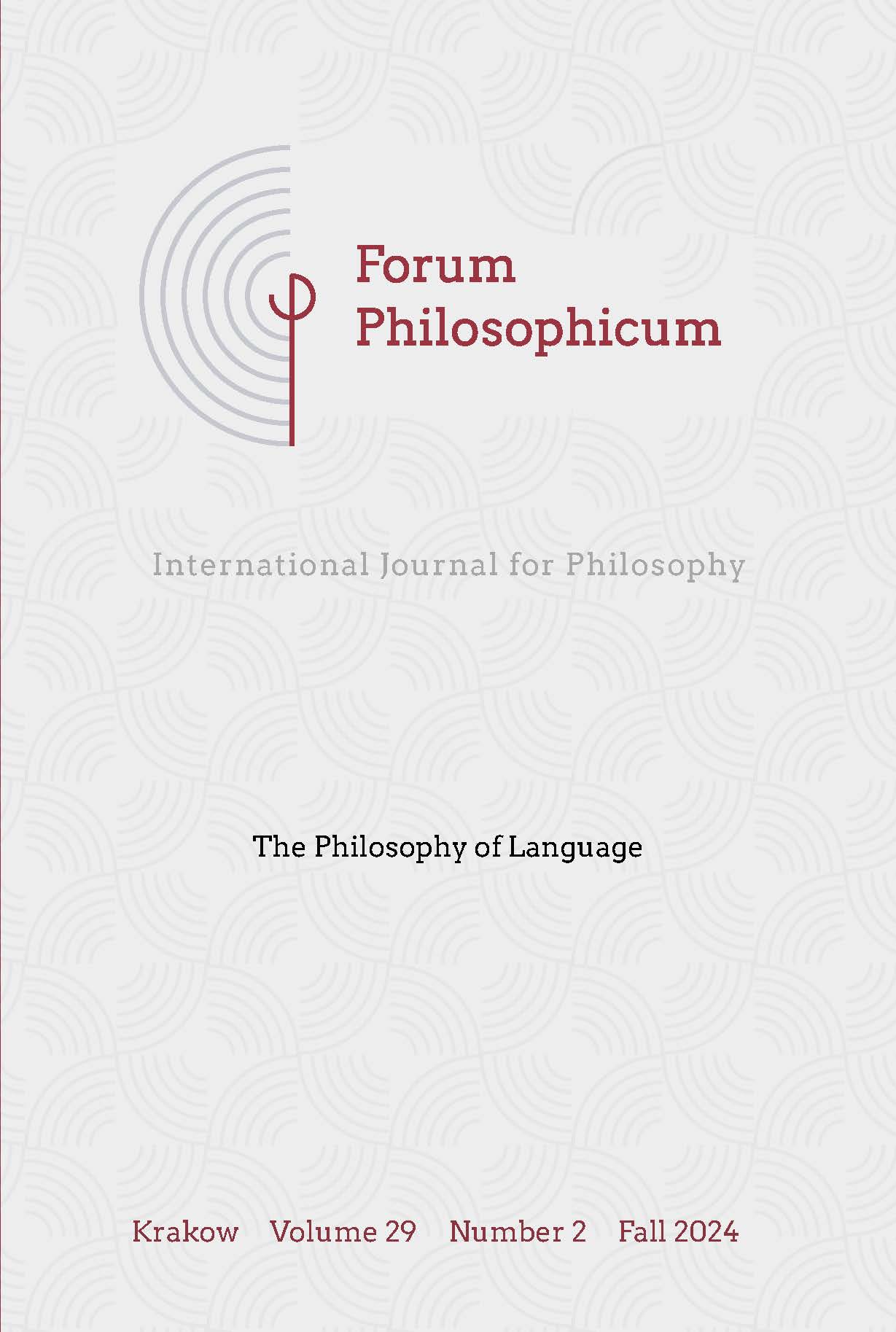29/2 – Fall 2024

Ludwig Wittgenstein wrote that “All philosophy is a ‘critique of language’” (1974, 4.0031) and certainly, within the analytic tradition, the nature of language, of what meaning is and how it is conveyed, has remained at the centre of philosophical concern since his time. The field is a broad one with many different approaches and priorities. It ranges through epistemology, metaphysics, philosophy of mind and into semantics and philosophy of linguistics, seeking answers to the questions of meaning, reference, and truth. It has been claimed that for analytic philosophers “the philosophy of language is the foundation of all other philosophy because it is only by the analysis of language that we can analyse thought” (Dummett 1978, 441–42), and, despite some suggestions that the subject has run out of road, this issue gives backing to the opinion “that the philosophy of language is an open enterprise and that it is in very good shape indeed” (Stalmaszczyk 2022, 46). This breadth of research topics and perspectives is reflected both in the papers which make up this special issue and in the presentations at the conference which inspired it. PhiLang 2023 was the eighth edition of the conference on the Philosophy of Language and Linguistics, founded and chaired by Prof. Piotr Stalmaszczyk, and held bi-annually at the University of Lodz.

 Martin Hinton
Martin Hinton Articles
Articles Artur Kosecki
Artur Kosecki Martin Hinton
Martin Hinton Fernando Martínez Manrique
Fernando Martínez Manrique Carlota García Llorente
Carlota García Llorente Hugo Heagren
Hugo Heagren Julia Ostanina-Olszewska and Aleksandra Majdzińska-Koczorowicz
Julia Ostanina-Olszewska and Aleksandra Majdzińska-Koczorowicz
 Articles on other subjects
Articles on other subjects Anna Bugajska
Anna Bugajska Mariusz Tabaczek
Mariusz Tabaczek
 Discussions
Discussions Kenneth Kemp
Kenneth Kemp Maciej Jemioł
Maciej Jemioł Tymoteusz Mietelski
Tymoteusz Mietelski Jacek Surzyn
Jacek Surzyn





